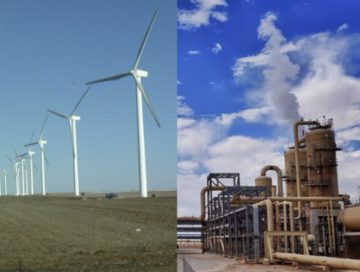Henry Farrell and Mark Blyth at Good Authority:
 Henry Farrell: You’ve written a very influential book on economic austerity and why Europe embraced it. Your work helps explain why Germany introduced a “debt brake” into its constitution that minimized government borrowing except under emergency conditions. Last week, the German Constitutional Court said that the debt brake prevented the government from borrowing money to finance green measures. What does this mean for Europe’s transition to a post-carbon economy?
Henry Farrell: You’ve written a very influential book on economic austerity and why Europe embraced it. Your work helps explain why Germany introduced a “debt brake” into its constitution that minimized government borrowing except under emergency conditions. Last week, the German Constitutional Court said that the debt brake prevented the government from borrowing money to finance green measures. What does this mean for Europe’s transition to a post-carbon economy?
Mark Blyth: Well, it’s not very good for it. The real question is, why do countries keep introducing pro-cyclical fiscal rules that make crises worse? In Germany, it allowed the Greens, who wanted to spend lots of money on heat pumps in every house, and the liberals, who wanted to spend no money, to join together with the social democrats to form a government. They compromised on doing the spending through what are called “off balance sheet vehicles,” which are like the “special purpose vehicles” that banks used in the run up to the financial crisis. The Court said they couldn’t do this.
Politicians don’t want to acknowledge what the carbon transition will cost. What could possibly go wrong when you hide debt from your voters, not acknowledging it as part of your balance sheet, taking the risk that interest rates go up and your asset values go down?
More here.
